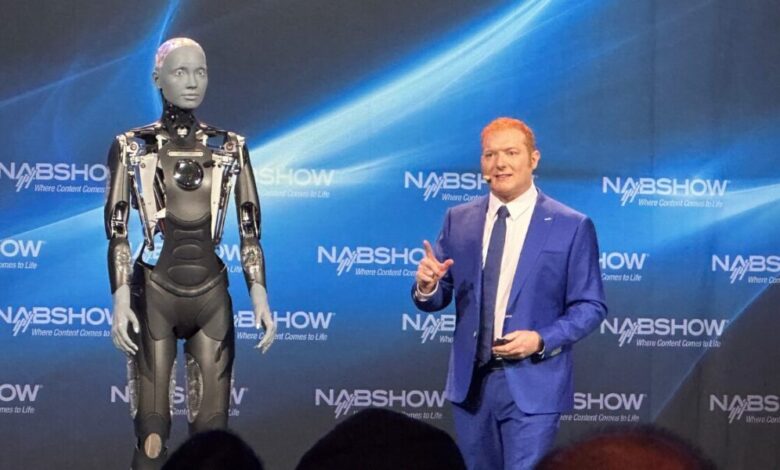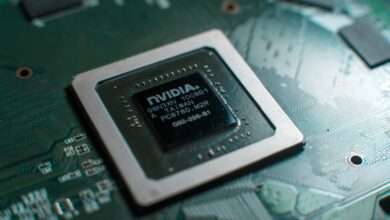Artificial Intelligence is Going to Change the Media Industry

Improvements to technology have been a part of the world as far back as I can remember. We saw LPs and 8 tracks replaced by cassettes, CDs, and MP3’s, newspapers/magazines shifted to websites, newsletters and social media, and black and white TV evolved to color, while cable was followed by satellite and streaming.
It’s happened on the dashboard inside your car too. Tesla’s today offer a different look than what you saw in 2000-2020 vehicles. Those automobiles offered better displays than what was available from 1950-1999. It’s why Xperi is aggressively promoting DTS Autostage. They want to improve the in-car data experience for operators, advertisers and auto dealers. I received an in-car education last week in Las Vegas. It was impressive. With nearly 7 million activated cars globally, and over 4 million operational in the US, the sample sizes are strong and growing. Eventually more in-car listening will be measured this way, not less.
The same transformation is happening with artificial intelligence. I know some folks hear those two words and get immediately nervous. It’s not perfect, and there are plenty of questions and concerns that need to be addressed. For starters, should it be regulated by the government? How will people know what is real and what isn’t? How do we prevent bad actors from using it for the wrong reasons?
Perry Simon made a great point in his column on BNM last week. He said ‘AI-driven operations will only be as good as the people programming, feeding, and operating the platforms.’ His assessment is that the problems facing the media industry are more about humans than about technology. That’s a fair statement. Many folks though are warning about artificial intelligence while carrying a cell phone in their hand, posting on multiple social media accounts, and telling Siri and Alexa what to play next.
Your every word and action is monitored today whether you like it or not. The second you say something out loud, you open up Facebook and see an ad for it. You plug in a smart speaker and it hears every single thing said in your home. Siri does the same in your car. While you can be concerned, and question why we give away access to our lives, the reality is that we do, and it’s not going to change.
So the questions become, how do we live with it moving forward? And, how can we use the technology to our benefit while installing guardrails to prevent malpractice?
At the NAB Show last week, AI was the central theme of the conference. If a business existed and could add the two letters A and I to its booth, it did. Everyone sees what’s happening. There’s a rush to establish a dominant position in the space. In many ways it reminds me of the sports betting craze in 2018. Every group rushed in, wanting a slice of the pie. Little by little, some faded away, others sold and became part of larger groups, and the heavyweights stuck around. The difference with this, those who get it right could own the world and specific industries, not just the sports bettor in individual states.
Stephanie Eads and I met with groups who are investing in AI. Futuri, Veritone, Adthos, Benztown/ENCO/Compass, AWS, Microsoft were some who we visited and heard samples from. A few others we’ve arranged post-conference meetings with. I also attended sessions including Daniel Anstandig’s keynote with Ameca, an autonomously AI-powered humanoid robot.
The media industry is going to change a lot due to AI. Some will read this and fear robots running the world. The possibility of jobs being lost will be another concern. I spend no time worrying about robot takeovers but I do understand the concern over jobs being eliminated. I have them too. But that raises a different question. Is the job you’re doing essential?
I don’t recall the same level of panic when the internet arrived and editors and writers lost jobs. Nor do I recall outrage when Blockbuster employees, taxi drivers and Yellow Pages workers lost jobs due to the arrival of better options. It’s part of life. Businesses and individuals will always look to innovate and evolve.
I stopped by the ENCO booth to see a few industry friends from Benztown, and watched a great presentation for SPECai. It’s going to be a sales department’s best friend. Excellent spec spots created quickly with creative writing, produced music, and a talent’s voice.
As I listened, I thought of how long it takes to complete this process inside a media operation. Currently, sellers write a script, send it to the production director, who then tracks down the talent and has them voice the spot before producing it and emailing it to the rep. The seller then reviews it and sends it to the client. That entire process, which takes hours to complete was done in less than ten minutes. By not having to waste time on the minutia, it gives sellers more time to create and sell. That benefits everyone.
I heard and saw similar things for on-air content. Daniel Anstandig played three clips during his keynote and asked the audience to guess if they were human or AI. All three were AI. Whether you wanted to admit it or not, they sounded great. I immediately thought of music stations that use voice tracking for nights and weekends, and DJ’s who fill time between songs and don’t establish themselves as personalities. If this technology can improve what’s on the air, while helping media groups reduce spending on less important parts to invest more in the key areas of their business, that just makes sense.
But it goes beyond that too. There are business opportunities that could exist that we’re not even thinking about right now.
What if WQAM in Miami, an English speaking sports station in a heavy Hispanic community, had an AI Spanish-Speaking version of its content on a second stream? Or if a sports station in Chicago used AI to license Mike Ditka and Harry Caray’s voices for commercials or specialized imaging/promos? Or if the entire library of Stuart Scott’s work at ESPN, Mike and the Mad Dog’s shows on WFAN or a sports franchise’s entire history could be bought and accessed in minutes. That could open up additional revenue opportunities while benefitting the user too.
How many radio station websites feature no written content or material delivered by outside sources? What if AI could deliver written stories to enhance your local offerings? Or maybe down the line, it helps with your social media content creation, promotion, and scheduling.
It can extend beyond content and sales too. How many businesses can benefit from improving employee training manuals and videos, payroll systems, powerpoint presentations, educating staff, analysis of metrics, etc.? Even some music will be created through AI. Before you write it off, watch this clip. It circulated on social media last week after OJ Simpson died. I don’t love the subject matter but you can’t say the tune isn’t catchy.
The one thing I’m confident of is that personalities are going to matter despite the rise of AI. You can’t sell remotes, live events, gain access to inside information from trusted sources or deliver 10-15 hours of live, compelling and entertaining long-form daily content without real people. But to think that all content and talent featured on brands are valuable, and various aspects of our day-to-day jobs can’t be improved is foolish.
Case in point, if you’re creating images for a station’s social media accounts, AI can crank them out better and faster. Do you know which AI tools to use to elevate your brand’s creativity? Are you adding video editing, social media management, content creation or other skills to your toolbox to become more valued? If your only focus is graphic creation and AI can do it better, you’re not protecting your future. I remember TV anchors refusing to shoot their own video. Anchors who were more versatile and open-minded eventually replaced them.
If you’re an update anchor, a role which I said 8 years ago lost value due to the accessibility of the internet, phone, and social media, what else are you contributing besides reports every twenty to thirty minutes? If I can promote upcoming games and sports stories in a report with AI, and seamlessly implement a ten second sponsor read, why is your role necessary? By the way, this applies to news, weather, stock and traffic reports too. Great anchors who offer value beyond reports (hosting, writing, video, etc.) will stay. One-tool players may be less fortunate.
I’m particularly curious to know if advertisers will support brands that rely on AI for content. Are agencies and local businesses going to invest significant dollars in a brand if a human isn’t helping them move product? Before we start launching AI powered radio stations, we better know that answer. Creating quicker solutions with spec spots is one thing. Earning the public’s trust and helping local and national brands grow their businesses is another.
I also wonder how talent and voice actors might benefit from voice licensing. Will society get smarter or become less informed due to becoming reliant on machine learning? How will this change journalism and the public’s desire to know the truth?
One of the best things I heard Daniel Anstandig say was that people spend 90% of their time on process and 10% on creativity. I couldn’t agree more. Many brands produce forgettable promotions, events, and content, relying on the same stuff they’ve done before rather than creating new, memorable moments or experiences. AI has many pros and cons, but I do love that it allows us to save time and focus on the most important parts of our jobs. For some, that’s outstanding news. For those lacking creativity and the ability to produce impact, get ready to be exposed.
______________________________________________________________________________________________________
Thumbs Up
Arizona Sports: Until this year, no sports radio station had won a coveted Crystal Award at the NAB Show. Bonneville’s Phoenix sports station changed that by receiving one of the ten awards distributed. VP/GM Ryan Hatch said on stage “I guess a sports radio station can win this award after all.” It was long overdue but very deserving. Arizona Sports and sister station KTAR News 92.3 teamed up with Phoenix Children’s Hospital for a Give-a-Thon week in 2023 to help raise $2.15 million for kids and families in need.
Nick Khan: WWE isn’t afraid to break away from tradition. That’s a good thing. Khan recently told SBJ that WrestleMania would no longer run opposite the Final Four. He also doesn’t want the event taking place in early April at an outdoor stadium on the East Coast. Having watched the show live in the cold in NJ and Philadelphia, as well as in Atlanta, San Francisco, and Orlando, it’s always more enjoyable in warmer cities. The content will be incredible regardless. So prioritizing the fan experience and running the event during a less competitive time for eyeballs just makes sense. Another smart decision by Khan and all involved with TKO/WWE.
John Sterling: His calls brought smiles to the faces of Yankees fans, and disgust to the faces of critics, but his style was unique and memorable, and his love for the team shined through. It’s what separated him from the rest. As a longtime Yankees fan, I and many others had the honor of hearing John’s work for thirty six years. No matter who steps in next, there will never be another like John Sterling. Thank You John for being you and making the moments matter.
Curtis LeGeyt: The broadcasting industry is lucky to have LeGeyt leading the way. I’ve had a few small chats with Curtis in the past, and have always enjoyed them. He’s likeable, smart, and cares about the industry. That was easy for attendees to see when he spoke with Adrienne Bankert on stage at the NAB Show. LeGeyt offered insights on AI, the battle local broadcasters face competing for ad dollars with Google and Facebook, and shared his optimism for the AM Radio For Every Vehicle Act passing in Washington D.C.. As a broadcast professional who cares about the future of the industry, it’s good to know we have LeGeyt on our side.
Mike Francesa/BetRivers: The two parties extended their partnership last week, and from the outside looking in, it appears to be benefitting both. Francesa still delivers content that gets picked up by outlets everywhere. That’s led to increased attention for BetRivers. Meanwhile, BetRivers has invested in Mike, giving him a second act after sports radio. That’s the sign of a good relationship. I’m glad to see both moving forward together and adding a daily YouTube show.
Thumbs Down
Gregg Doyel: The Indy Star sports writer has taken a beating for his awkward exchange with Caitlin Clark. Rightfully so. It was bizarre. What baffles me is how some sports writers ask the worst and most odd questions during press conferences. Rather than trying to be liked, how about pursuing information to benefit the reader? Just because you’re a good writer doesn’t mean you’re qualified to ask good questions. Some of these folks, Doyel included, need interview training. I’d also suggest not getting cute. It’ll help you avoid becoming the story.
YES Network: On Saturday, the Yankees held a pre-game press conference for John Sterling to address the media. Rather than airing it on television, YES stuck with their normal pre-game show. When special moments happen, you have to adjust your format to serve your audience. YES didn’t. Sterling’s media conference should’ve been shown in its entirety on TV.



